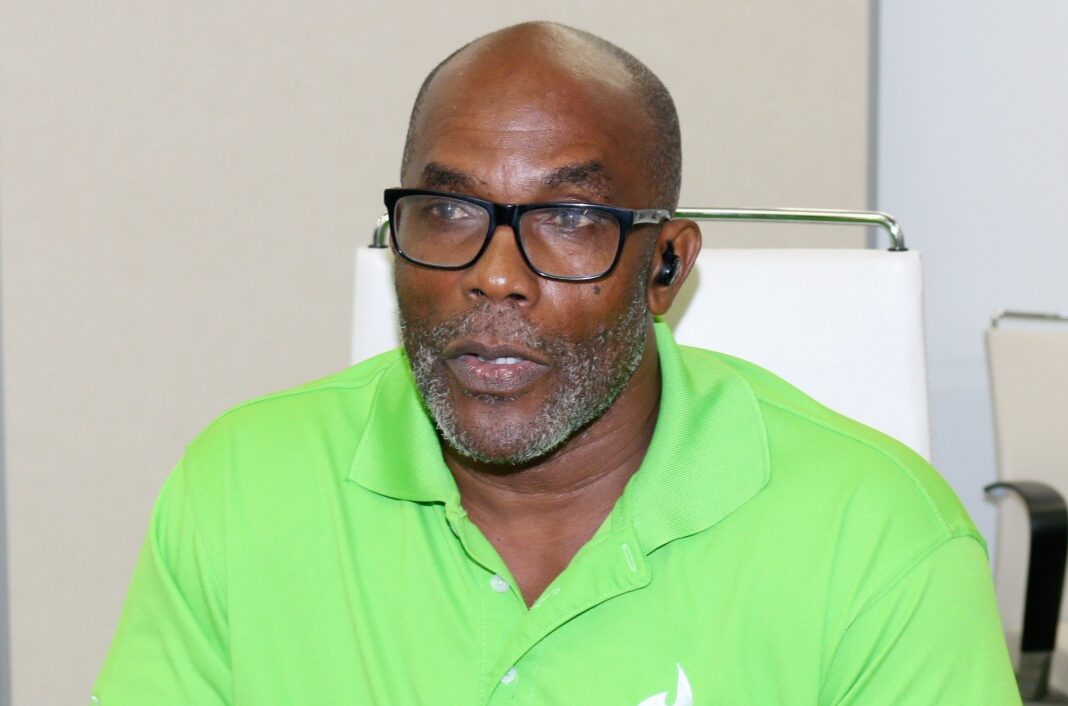Barbados Faces Water Scarcity Challenges in Supporting Large-Scale Food Production: Barbados Water Authority Confirms.

October 17, 2023
Barbados faces challenges in large-scale food production due to a lack of water, confirmed by the Barbados Water Authority. The BWA is seeking solutions to assist farmers in accessing water for irrigation.
Barbados does not have enough water to support large-scale food production, the management of the Barbados Water Authority (BWA) has confirmed.
During a presentation at the launch of the Grow Green initiative held at the United Nations House in Hastings, Christ Church on Monday, Manager of Water Resources and Environmental Management Alex Ifill said that even though a substantial amount of crop producers engaged in rainfed farming, the BWA did not have the capacity to facilitate an island-wide project to boost production.
In fact, he said that due to climate change, rainfed farming was unsustainable and that in itself was putting pressure on the farming community.
“The development of agriculture as the main system of food production in the world is necessary . . . but a key part of that is the access to water for irrigation. The current climate crisis has now begun to put pressure on that key resource that is available for agriculture and there are conflicts between water for the environment, water for agriculture and water for people,” he said.
As it stands, Ifill said Barbados was the 16th most densely populated country in the world and the 15th most water-scarce nation, with only 81100.8 gallons (307 cubic metres) of water available. He noted that there was increasing urbanisation and an increasing water demand of 1.5 per cent, per capita, per year.
“For efficient irrigation in this climate, we need about one inch per acre for irrigation per week. If all the arable land [was used], that’s about 25 000 to 28 000 acres; that would be a demand of about 80 million imperial gallons per day. Thankfully, about 40 to 50 per cent of our agriculture is rainfed, but it’s still an impact on our national water reserves because when you get into crops such as bananas, those have high evapotranspiration losses, they suck up a lot of water.
“Then when you have animals such as poultry, it is not only about the growth of the chicken but in the processing where you need high-quality water in that production. We at the BWA, we use about 30 million gallons to 34 million gallons of water per day to feed the population.
“We are in deficit from December to almost into July if we were to irrigate the arable land efficiently. So this means that there is a shortfall if we are to expand total food production to cover all the arable land in Barbados and to irrigate it efficiently,” he said.
Ifill pointed out that for the past at least 17 years, climate change has had a significant impact on rainfall and the island has been experiencing below-average rainfall.
He said the average number of rainy days was shortening and the need for irrigation was expanding, thereby “putting some stresses on the farming community”.
In light of the challenges, Ifill said the BWA was looking at ways to assist farmers.
Under the Water Use Act 2023, he said the BWA was looking to provide two million gallons of water per day to the agriculture sector, at least in the first instance.
He said the challenge of doing so would be the pipelines and getting it to and from the farms. Ifill said the private sector, notable hoteliers and manufacturing plants would be offering the farmers reused water. (SZB)


